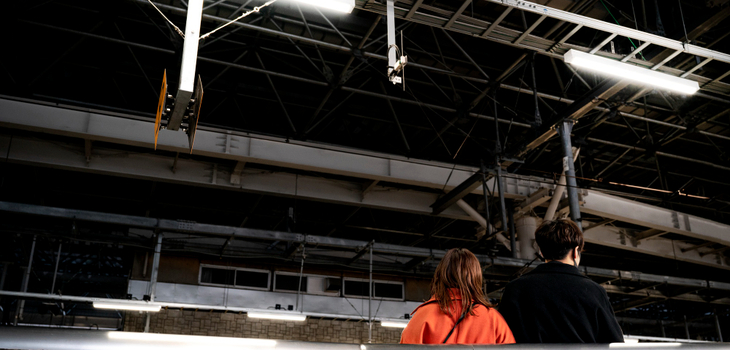Top Challenges in Exhibition Logistics and How to Overcome Them

Trade fairs, exhibitions, and similar events are great for growing your business. They help you find new clients. The safe movement of exhibits is critical to the success of these events. Getting a pro for your move puts your mind at rest. It also allows you to focus on other areas of your business.
Moving of any kind can be a challenge. Exhibition logistics involves a lot of planning and consists of moving and installing trade show exhibits and equipment. Learn about the significant exhibition logistics challenges and how to solve them.
Like every other kind of move, event logistics has challenges. You have to know these to find solutions for exhibition logistics.
- Tight Deadlines:
Setup and installation need to be done in a limited time. Managing event logistics involves controlling many activities at the same time. The team has to work with the venue management to get permission. They must remove exhibits and materials after the event. Rushed handling could damage or lose materials, which increases stress and pressure on the teams.
- The team solves this problem when they:
- Create a detailed and realistic schedule.
- Work hand in hand with vendors, suppliers, and stakeholders.
- Prepare backup plans for unexpected delays.
- Identify possible problems and find solutions for them.
- Revise their plans from time to time for accuracy.
- Complexity of Exhibits:
This is another event logistics challenge. Large or heavy exhibits need special handling, and some may have complex technical conditions. A pro should know that each exhibit is unique. Otherwise, there is a risk of damage during transportation, which can harm the image of the exhibitors, the event, and the logistics company.
- What is the way forward?
- The team must have made plans early.
- They must also get in touch with the exhibitors.
- Special equipment and labor should be available to prevent delays.
- The team should have contacted the exhibit designers and builders. This would have helped them dismantle and reassemble easily.
- On-site technical support is essential for regular inspections and quality control.
- International Shipping:
This is also an exhibition logistics challenge. A logistics company must have the license to ship exhibits. In managing event logistics, it's vital to follow all customs rules. Companies should prepare correct and complete documents for shipments abroad.

The company must manage duty and tax payments, ensure smooth customs clearance to reduce delays and decide which transportation mode is most suitable. Proper insurance coverage for international shipments is important for damages.
This could be a lot to handle. But as a team, these challenges can be solved in these ways:
- Ensure proper documentation.
- Know the customs rules.
- Work with experienced freight dispatch.
- Build relationships with customs agents.
- Make use of logistics management software.
Dealing With Last-minute Changes
Last-minute changes are some of the significant exhibition logistics challenges. To deal with them, the teams need to be flexible. Clear communication and proactive problem-solving are essential to fix this. Due to some factors, there may be a need for a change of plan. Here are some last-minute changes that could pose an event logistics challenge:
- Changes in venue layout
- Changes in access to the venue.
- New events or exhibits may be added. Existing events may also be canceled.
- Changes in shipping and delivery dates.
- Financial constraints.
- In addition to the technical conditions.
These challenges may alter transportation schedules, affect installation and dismantling plans, change the budget, or cause financial problems, which in turn would shake up the event marketing and promotion.
How to fix this challenge:
- Create a flexible schedule that allows for quick changes.
- Stay calm. You'll be able to access the impact with ease.
- Be in contact with stakeholders every day.
- Bond with the vendors and suppliers.
- Use technology to track shipment. Get real-time updates.
- Put a change management method in place.
- Focus on changes and essential activities.
Managing Logistics for Large-Scale Events
Many areas need attention when managing large-scale event logistics. This structured approach helps you manage logistics for significant events with great success.
- Concept:
State the event's purpose, scope, and demands. Know the number of attendees, exhibitors, and vendors. Create a budget and set timelines. Look into factors like the venue and transport—plan for lodging and equipment needs.

- Make Plans:
Make a simple logistics plan. Your plan should have:
- Movement of equipment and exhibits from the delivery point and on-site. Arrange for this 4 to 6 months before the event.
- Storage means for equipment, materials, and exhibits.
- Necessary things, such as audiovisual, lighting, and electrical supplies, are vital. Ensure that they are available and meet the event conditions.
- Skilled labor for installation, dismantling, and on-site support. Assign a team to handle incoming cargo.
- Make a daily work schedule. Make a list of activities for each day. This will help you focus on specific tasks and track progress daily.
- Select and Manage Venue:
Consider these when you choose venues:
- Space: There should be enough space for exhibits, attendees, and logistics operations.
- Accessibility: The venue should have loading docks and parking lots. It should be close to airports or transportation hubs.
- Amenities: Ensure that things such as power, water, and internet are available.
- Work with venue management to confirm logistical arrangements.
- Make Room for Emergencies:
It should allow for unforeseen situations, like:
- Weather issues.
- Cancellations on short notice.
- Equipment failures.
- Security breaches.
- Post-Event Evaluation:
Find areas for improvement. Document lessons learned. Update logistics plans for future events.
Strategies for Flexibility and Adaptability
Taking this approach allows you to adjust to changes with ease. It reduces exhibition logistics challenges. This way, you have ready solutions for logistics challenges. It also assures you of a successful event. Look at the following steps:
Create backup plans.
- Be flexible.
- Write out schedules.
- Work together and interact.
- Share resources fast.
- Keep a close eye on activities.
- Make sure team members have more than one skill set
- Take advantage of technology.
- Form important partnerships. Build a network.
- Make your budget flexible.
- Take regular reviews and revisions.
- Assess possible risks and find solutions to them.
Conclusion
Understanding exhibition logistics challenges is essential for both the client and the company. It helps the client know what to expect and helps the company know what to focus on. Moovick is the platform that unites clients with professionals. We offer a wide range of options to help you move within Germany and across Europe.
Moovick's exhibition logistics services can boost your efficiency. You can place last-minute orders, and we will deliver on time. We will work with you to find the best solution to your challenges. Our service providers are also available to assist you with any task you need to get done. Contact us here or check our help center. We may have answered your questions already. Place your order today!
Popular Articles

Exploring The Different Services Offered by Local Moving Services

Why finding a job is so difficult: You could be missing out on thes...

The Importance of Insurance Coverage During a Local Move

Moving Maverick: Unconventional Tips for a Seamless Transition

DIY vs. Professional Packing: Which Option Suits Your Move Best?

How Semi-Skilled Immigrants Can Thrive in Dresden’s Job Market

